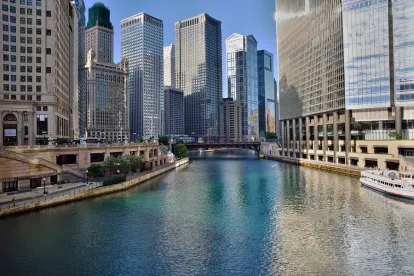Last month, Cook County passed an ordinance requiring employers in the County to provide eligible employees with certain paid sick leave benefits. The ordinance largely mirrors a recent amendment to the Chicago Minimum Wage Ordinance, which was passed in July 2016. Both are scheduled to go into effect on July 1, 2017, and a new Illinois law pertaining to sick pay benefits is set to take effect on January 1, 2017.
Cook County’s ordinance applies to employees throughout the county except where a home rule municipality has passed its own sick leave law. So far, Chicago is the only home rule municipality in the County to have done so, although some other cities in Cook County have expressed an intent to potentially opt out of the ordinance. In addition to these two new ordinances, the state of Illinois has also passed a new law that extends sick pay benefits to family members of employees.
Here’s what you should know about these new laws:
The Cook County & Chicago Ordinances:
Who qualifies for paid sick leave?
Employees are eligible for paid sick leave if they (i) work at least two hours in a two-week period while physically present in the geographic boundaries of the City of Chicago and/or Cook County, and (ii) work at least 80 hours in any 120-day period.
Who is a covered employer?
A covered employer includes individuals and companies with a place of business in Cook County and/or Chicago that employ more than 1 individual. Cook County’s ordinance excludes government entities and Indian tribes from the paid sick leave requirement, and employees covered by collective bargaining agreements are able to waive the requirements in their contracts. Chicago’s definition of “employee,” which references the Illinois Minimum Wage Law, excludes five types of employees from paid sick leave coverage: agricultural employees, outside salespersons, members of religious corporations or organizations, students at an Illinois college or university who are covered by the Fair Labor Standards Act, and employees of motor carriers. Both ordinances exclude construction workers subject to collective bargaining agreements.
How many hours are employees permitted to accrue and at what rate?
Employees accrue paid sick leave beginning either on the first calendar day after commencement of their employment or on July 1, 2017, whichever is later. Paid sick leave accrues at the rate of one hour for every 40 hours worked. Employees can accrue and use up to 40 hours of paid sick leave per 12-month period. Employees may be required to wait 180 calendar days following the start of their employment before they are able to use any accrued leave.
For what purposes can an employee use paid sick leave?
An employee can use paid sick leave (i) for his/her own or a family member’s illness, injury, medical care, treatment, diagnosis or preventative medical care; (ii) if s/he or a family member is the victim of domestic violence or a sexual offense, as defined by law; and/or (iii) if the employee’s place of business, or child’s school or place of care, is closed by government order due to a public health emergency.
Can an employer require the employee to provide notice?
If an employee’s need for paid sick leave is reasonably foreseeable (e.g., prescheduled appointments with health care providers and court dates), an employer may require up to seven days’ notice before leave is taken. If the employee’s need for paid sick leave is not reasonably foreseeable, an employer may require notice as soon as practicable on the day the employee intends to take the paid sick leave. An employee may notify the employer of the need for leave via phone, e-mail or text message if the need for leave is not reasonably foreseeable.
Can an employer require a doctor’s note?
If the employee is absent for more than three consecutive work days, then an employer can require documentation signed by a licensed healthcare provider that the paid sick leave was used in accordance with the law. An employer cannot require the documentation to specify the nature of the injury, illness or condition, except as required by law.
Can hours carry over to the next 12-month period?
Yes. Employees can carry over half of their unused paid sick leave, up to a maximum of 20 hours, to the next 12-month period. Additionally, employees who work for an employer covered by the Family and Medical Leave Act (“FMLA”) may carry over up to 40 hours of unused accrued paid sick leave to use exclusively for FMLA-eligible purposes.
The ordinances also require employers to (i) post a notice in a conspicuous place within the workplace advising employees of their rights to paid sick leave and (ii) include such a notice with an employee’s first paycheck (City of Chicago) or provide such notice at the time of commencement of employment (Cook County). The Ordinances provide an employee with a private right of action for an employer’s non-compliance with any provision of the law.
The Illinois Employee Sick Leave Act
Unlike the Cook County and Chicago Ordinances, Illinois’s new law does not require employers to provide paid sick leave to their employees. Instead, the new law requires employers who already provide personal sick leave to allow employees to use that sick leave to care for family members. An employee may use up to half of his/her accrued leave time for absences due to illness, injury, or medical appointments of the employee’s family member. Family members covered by the law include the employee’s child, spouse, domestic partner, sibling, parent, mother or father-in-law, grandchild, grandparent, or stepparent.
Employers are hopeful that implementing regulations and guidelines will clarify some unknowns in the new laws, such as whether employees will be entitled to reinstatement of paid sick leave if they leave employment but return within a specified period.
Chicago, Cook County, and Illinois are just a few of the many state and local governments across the country that have passed paid sick leave laws in recent years. The State of Connecticut passed the first paid sick leave law in 2011. Since then, more than 30 states, municipalities and counties have enacted versions of paid sick leave laws.
Employers should carefully review their policies related to paid sick leave to ensure compliance with the new laws. Employers with employees outside of Illinois should determine whether they need to amend their sick leave policies to ensure they are in compliance with state, municipal and county paid sick leave laws being enacted around the country.
The amendment to the Chicago Minimum Wage Ordinance may be found here. Cook County’s Earned Sick Leave Ordinance may be found here. Illinois’s Employee Sick Leave Act may be found here.




 />i
/>i

